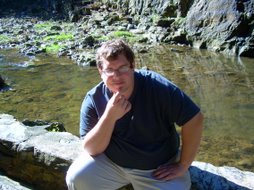 This is what it's all about! Symphonic prog at its best. The British might have invented Prog, but the Italians perfected it. Banco's Io Sono Nato Libero is one of the best compositions of all the ages. Even without Francesco Di Giacomo's operatic voice, Di Terra proved to be a strong album as well.
This is what it's all about! Symphonic prog at its best. The British might have invented Prog, but the Italians perfected it. Banco's Io Sono Nato Libero is one of the best compositions of all the ages. Even without Francesco Di Giacomo's operatic voice, Di Terra proved to be a strong album as well.Unlike many other groups the same age, Banco is just as good today as they were thirty years ago. Francesco's vocals are still as powerful as they ever were. As is Vittorio Nocenzi's skills at the keys. The biggest surprise was wind player Alessandro Papotto perfectly quoting Rhapsody in Blue and then utterly slaying his instrument--musically speaking.
There were chops galore. And heart lifting melodies. By the end, I wanted to go down and give Francesco a bear hug.







